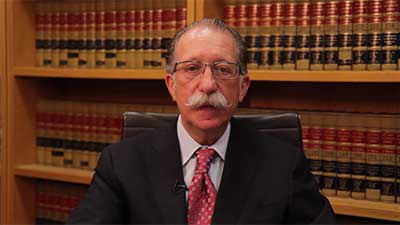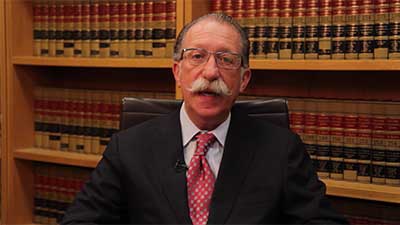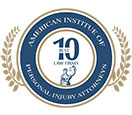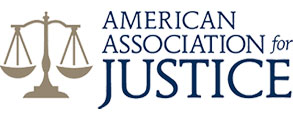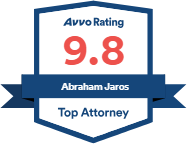Can My Spouse Sue Me?
The answer used to be: Check your insurance policy. Did you pay for and add a provision to your insurance policy specifically permitting your spouse to sue you if you were driving and your spouse was injured in an accident. Unfortunately, most insurance companies and agents did not advise their clients of this option that needed to be specifically requested. Since most people were not aware of this coverage option most people did not request or purchase this coverage.
Think about it. Who do you spend most of your time with while driving in your car? The answer is probably your spouse. Thus, the risk of being involved in a car accident with your spouse, in which the driving spouse is totally or partially at fault, is quite high.
You may be wondering: Why is this so important? Because in New York the rule of joint and several liability applies when there are multiple defendants. New York State's joint and several liability laws allows plaintiffs to hold defendants, individually or collectively, accountable for the total amount of their damages. In practical terms this means that even if, for example, your spouse was only 1% responsible for the accident in which the spouse was injured you may still collect the entire amount of damages from the spouse’s insurance company.
Assuming you have a $1 million insurance policy and the other car has only $25,000 then even if your spouse was only 1% responsible for the accident you may collect up to $1 million from your own insurance company.
The good news is that the law in New York was just recently changed. On Aug. 1, 2023 a new law went into effect in New York requiring insurance companies to now automatically add supplemental spousal liability insurance to every New York policy holder's bill, unless that person now chooses to opt out of the coverage. So that if a person was injured in a motor vehicle accident, which was even partly caused by the negligence of that person's spouse, they can now sue their spouse to recover for their injuries.
Married individuals will certainly now benefit from this new policy. Unmarried persons should now be aware that they can, and should, opt out of this coverage as it provides no benefits to them.
The one area where it is perhaps most common for a spouse to sue their spouse is when spouses sue one another after a car accident. You must realize that although this does not sound right-suing your spouse does somehow sound bad-you should realize that you are really suing your insurance company to collect your damages under the insurance premiums you have been paying.
You pay for insurance in case you are involved in an accident so as to both to protect your assets as well as to compensate those persons that are injured while you were driving.
Once there is an accident with another vehicle your attorney will sue the other vehicle for that vehicle's “negligence” in causing the accident and your injuries. However, the other side, the defendant, will most likely then blame your driver for all or at least part of the accident. This means if the other driver can prove that the cause of the accident was all your driver’s fault then you will not receive any compensation at all from the other driver. If, however, you bring a lawsuit against the other driver as well as your own driver, who happens to be your spouse, then as the innocent passenger, you will be compensated regardless of which driver was at fault.
It is important to sue both drivers as you do not know how much insurance coverage the other driver has or who will be found to be responsible for causing all or part of the accident.
Once a suit is initiated against a spouse it proceeds just like any other lawsuit. The injured spouse must prove the driving spouse was totally or at least partially at fault in causing the accident and the resulting injuries. Your insurance company will have a lawyer representing the spouse that was driving.
I am often asked: Will my car insurance premium rates go up? Probably yes. However, if you were seriously injured in a car accident as an innocent passenger then your recovery in the lawsuit will be in the tens or even hundreds of thousands of dollars, depending on the severity and permanency of your injury, while your increased insurance premiums may be just a few hundred dollars. The compensation you receive from a lawsuit is also tax free.
You need an attorney that is aware of the ins and outs of car accident cases and the applicable insurance provisions to be sure that you recover the maximum amount possible for your injuries.
If you or a loved one were injured in a motor vehicle accident that has resulted in a serious physical injury and are in need of legal assistance, call the experienced lawyers at Jaroslawicz & Jaros to find out if you are entitled to compensation. The attorneys at Jaroslawicz & Jaros are experienced accident lawyers who can help you get the compensation you deserve.





